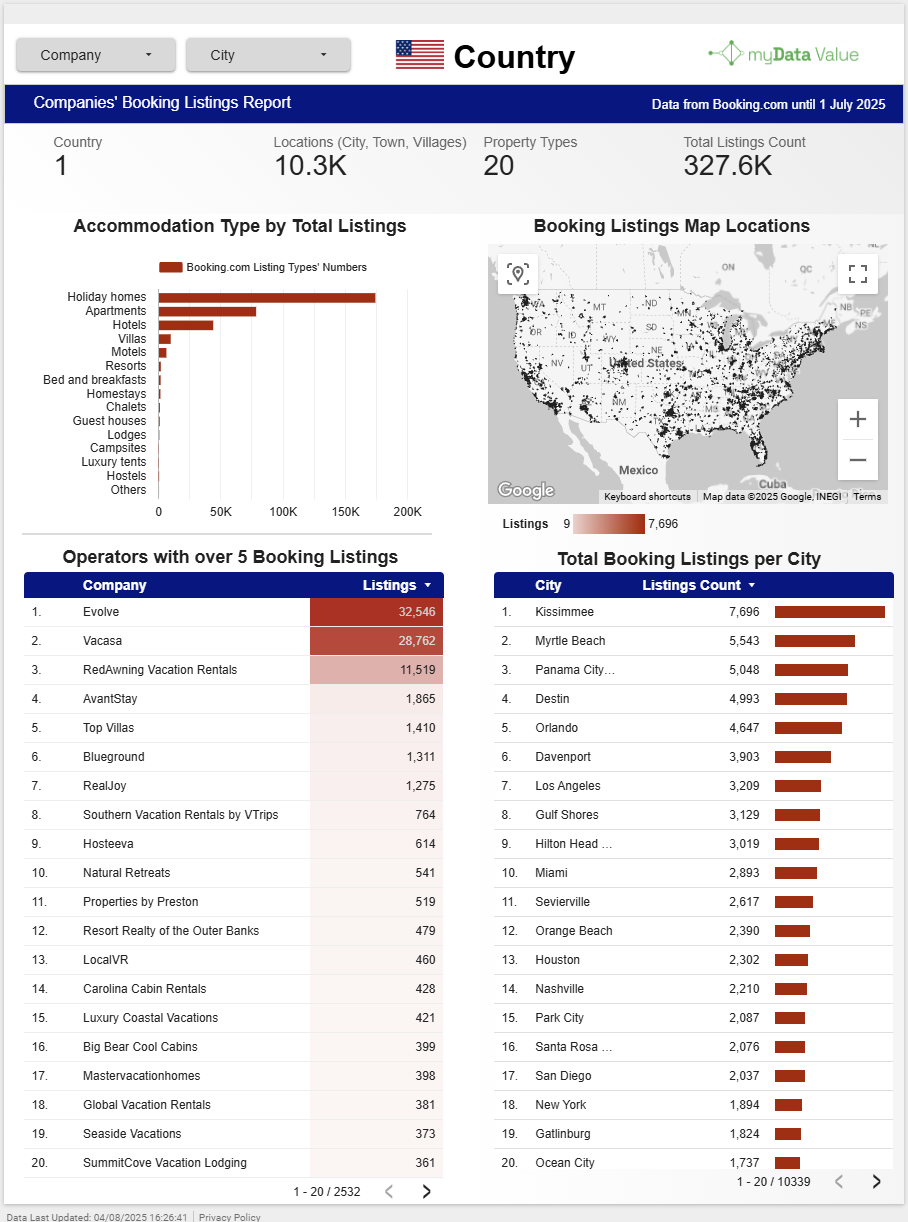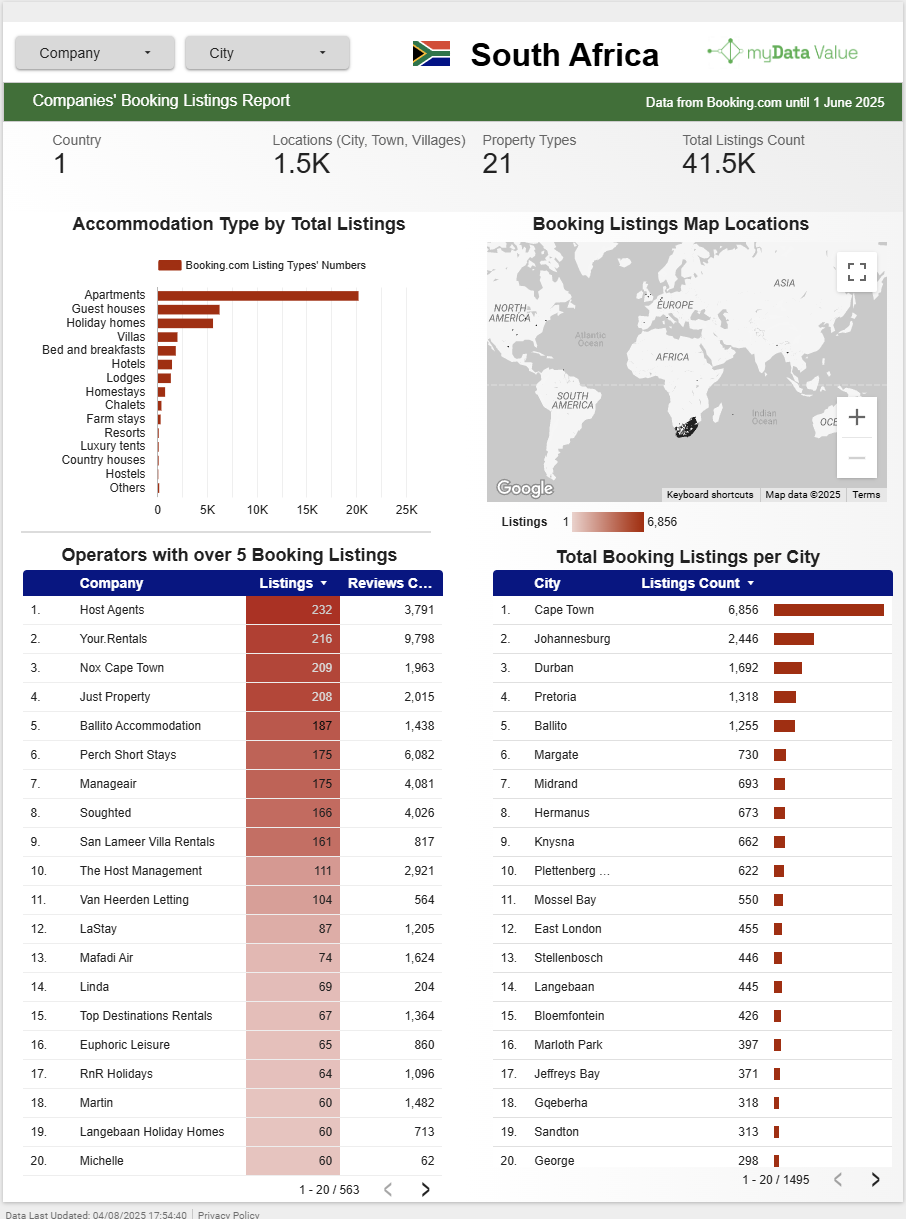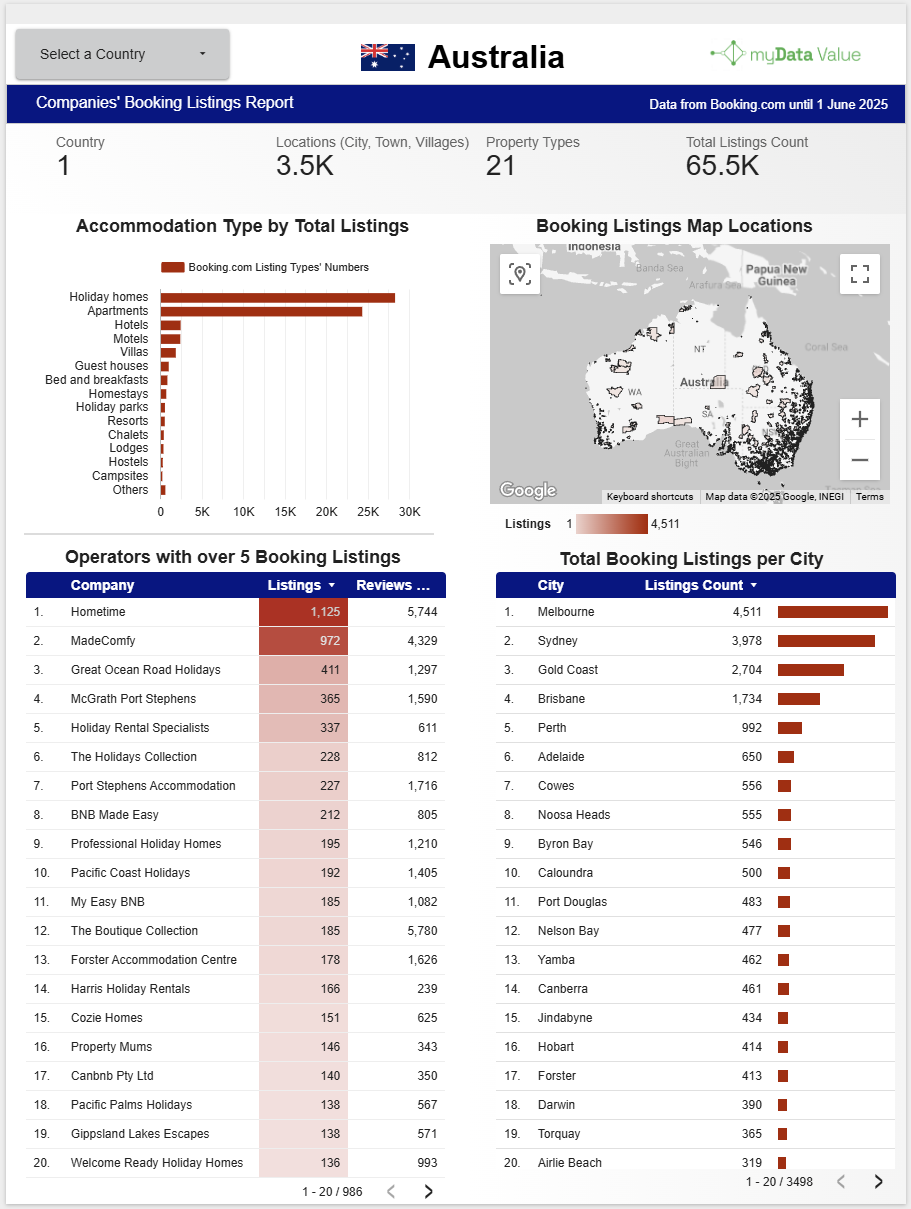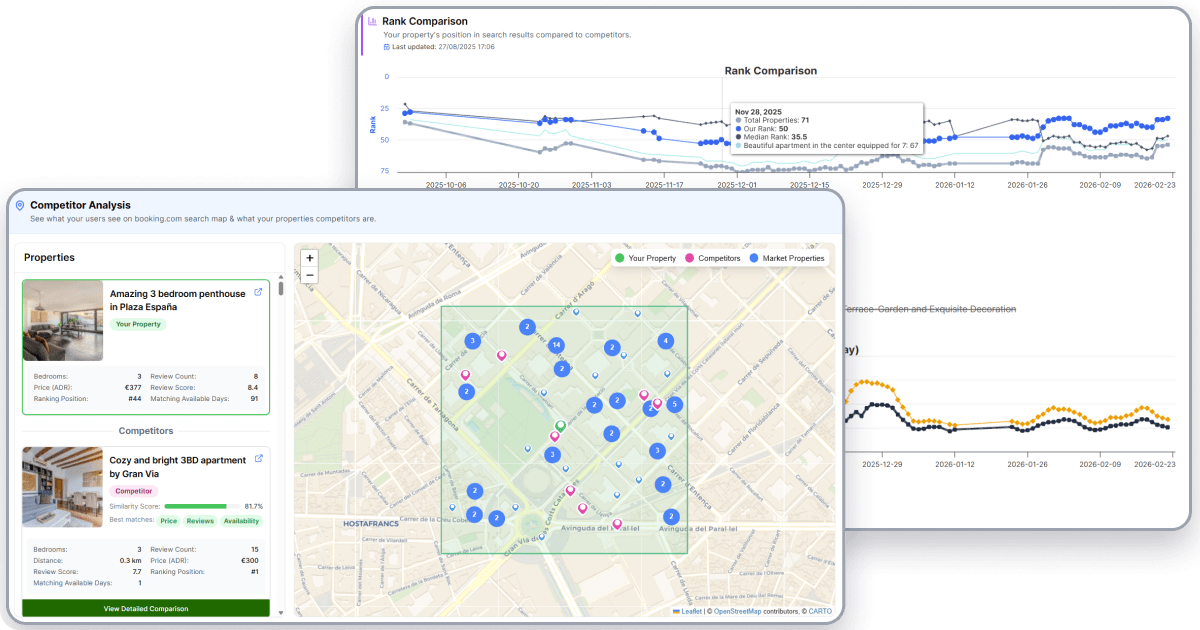Innovating Hotel Reporting Software: Generate Accrual Reports with a Single ChatGPT Question - Part 2
Optimise hotel performance with accrual-basis reports with a single ChatGPT question. Get the real-time revenue, financial data and hotel reporting you need, especially for longer-stay reservations, to make informed strategic metric decisions.

The limitations of traditional hotel reporting often leave hoteliers in the dark when it comes to true financial performance. Manually compiling spreadsheets, battling inconsistent data, and relying on limited reporting tools hinder strategic decision-making. But imagine having the power to cut through this complexity with a single question. AI-powered reporting is revolutionizing the industry, and tools like ChatGPT 4 can deliver comprehensive accrual-basis reports in seconds, of course with its limitations which could be overcome. This is discussed and analysed in detail in the next sections.
In this blog post, we'll dive into the value of accrual reporting, how to harness ChatGPT for instant financial insights (with a real-life example!), and the factors to consider when choosing the right reporting software for your hotel. You can skip through the third section to see how you can generate an accrual basis report with ChatGPT4.
You can download the data used to generate the sample by following the link below:
What is the challenge with traditional hotel management software reporting?
A Time-Consuming Data Compilation System
Traditional hotel reporting is a time-consuming and often frustrating process. Hoteliers are forced to manually gather data from their PMS, CRM, operational software, pricing tools, and potentially even ad hoc spreadsheets. This fragmented data landscape means hours spent logging into disparate systems, downloading reports, and tediously copying and pasting information. It's a process that not only drains time but leaves the door wide open for human error.
The Risk of Spreadsheet Errors
The reliance on spreadsheets for data compilation introduces a whole new layer of risk. One incorrect formula, a mistaken cell reference, or accidental data overwriting can have a ripple effect, throwing off the accuracy of the entire report.
The Burden of Constant Auditing
Even when reports are provided by individual systems, the need for constant auditing and cross-checking significantly prolongs the reporting process. Often, at least 80% of reports (based on conversations that I have had with hospitality industry professionals) likely need verification, fostering a sense of uncertainty that undermines confidence in the data.
Limited Flexibility Hinders Agility
Moreover, traditional hotel reporting often lacks the flexibility to deliver the precise insights required for quick and informed decision-making. Pre-built reports can be rigid, offering little opportunity to delve into specific metrics or adapt to evolving business needs. This limitation hinders agility, preventing a timely response to shifting market trends or evaluating the effectiveness of recent initiatives.
What is an accrual-basis report and why is it important?
What is accrual-basis reporting?
Accrual-basis reports give you a "true performance" snapshot. They track when money was earned (like when a reservation was made) and when expenses were incurred (like the cost of cleaning that room), even if payment happens weeks or months later. This is essential for understanding how much profit your hotel really made in a month, week, or even a specific day.
Why is it better than cash-basis analytics?
Cash-basis reports only tell part of the story. Imagine getting a huge deposit in January for a guest staying in March. A cash-basis report makes January look fantastic, but hides that you'll have room costs in March – that's misleading! Accrual reporting solves this by matching money earned with costs over the correct time period.
Why is an accrual-basis reporting solution so important?
It's like having an X-ray of your hotel's finances. You can see if you're actually making money each month, instead of guessing based on when cash comes in and out. This makes smarter decisions possible:
- Pricing: Are your rates too low during peak season when profit is actually higher than you thought?
- Promotions: Is that discount really boosting business, or are you losing money on cheap stays?
- Spending: Do you have room in the budget for new staff, or should that wait till occupancy rises?
How to use ChatGPT to generate accrual-basis hotel revenue management performance reports
Before we can generate an accurate accrual-basis report, we need to get a handle on the structure of your hotel's reservation data. That's where ChatGPT comes in! Think of it as a super-smart data analyst. Let's feed your Excel file to ChatGPT and see what it can tell us about the available information. Examining the columns is critical since they hold the key to calculating true occupancy.
Explain how ChatGPT 4 generates the accrual base chart and handles the data sorting
Question/ Prompt: Calculate the total number of rooms occupied each day for the current week from 18 to 24 March, after considering only accepted bookings and taking into consideration the date of stay should be between the check-in and check-out date.

ChatGPT as the Analytical Assistant
Okay, ChatGPT sees columns like "is_canceled" and "arrival date" – great start! Accrual reporting hinges on knowing when a reservation translates into actual revenue. So, it's time to ask ChatGPT to pinpoint these essential elements:
- Check-In Date: ChatGPT needs to confirm where it can find the specific check-in date as this signals the start of a revenue period for that booking.
- Check-Out Date: Equally important, we need ChatGPT to identify how check-outs are recorded. This marks the end of the revenue window.
- Cancellation Status: We'll ask ChatGPT to help us locate a definitive field that flags cancellations – these need to be excluded for a true financial picture.
Pros
What sets ChatGPT apart is its extraordinary ability to uncover hidden patterns and relationships within your reservation dataset, even when the information isn't neatly labelled. Unlike traditional tools that need explicit directions, ChatGPT can analyze your data, identify potential columns of interest (like guest arrival and departure patterns), and even deduce the logic connecting these data points.
For example, it might recognize that a "length of stay" field, combined with the check-in date, could be used to calculate the check-out date. Or it might recognize other patterns that you and I might completely overlook! This internal logic-building is what allows ChatGPT to adapt and provide tailored answers, pinpointing those specific day-by-day differences between check-in and check-out, no matter how your data is initially structured.
Cons
While ChatGPT demonstrates impressive analytical abilities, it's crucial to remember that its effectiveness hinges on the quality and structure of your data. Incomplete or inaccurate datasets can lead to misleading results, even with the model's best intentions. Furthermore, even though ChatGPT can adapt to an extent, providing specific prompts and clarifying follow-up questions is essential to ensuring it accurately addresses your needs. There's always a risk of the model "hallucinating," meaning it produces seemingly confident, yet incorrect, outputs. This underscores why having an audit system or human expertise to verify results is crucial, especially in high-stakes industries like hospitality where financial accuracy is paramount. ChatGPT should be a powerful tool in a hotelier's arsenal, not a replacement for critical thinking and domain-specific knowledge.
Sign up for the waitlist now if you are interested to find out more about how the Cons of ChatGPT could be overcome and to be one of the first to test a trained generative AI assistant solution for the hospitality industry.
Calculating the Results
Analysis complete! Based on your specific data, and with ChatGPT's help, here's the room occupancy breakdown for March 18th to 24th, taking cancelled bookings into account:
- March 18th: 20 rooms
- March 19th: 20 rooms
- ... and so on
Keep in mind, that ChatGPT assumes a room is "occupied" for any night within the check-in and check-out dates. Since you have the final say on how your occupancy is interpreted, we can refine the query if this calculation doesn't perfectly align with your hotel's practices.
Under the Hood
Interested in the inner workings of ChatGPT 4? One important aspect is its focus on process. Like a beginner or intermediate Python developer or data analyst, this language model follows a logical sequence of steps to solve problems. It can refine its analysis mid-task and adapt its output based on the user's questions. However, limitations exist – ChatGPT4 might stumble if it misunderstands the instructions or if it doesn't possess the deep domain knowledge needed for a specific scenario.

Question/ Prompt (Hotel Revenue and Occupancy): I have 30 rooms based on that can you create a chart with the occupancy percentage line and total revenue bar chart?
The example below showcases how ChatGPT excels in handling data tasks like a skilled analyst. Not only did it sort and organize the information, but it also generated a visually informative chart. What's more, the code it produced could potentially be repurposed for an internal application, saving time on repetitive tasks – provided your data stays consistently formatted.
Understanding the Chart's Complexity
The combo chart produced here is fairly intricate, blending a line chart for occupancy with a bar chart for revenue. While this format is powerful, it might not be the first choice for a beginner. However, as your experience with ChatGPT grows, so does your ability to ask precise questions and unlock new visualization possibilities. The potential is nearly limitless, but it's beneficial to study best practices and explore different chart types to maximize their power for your data analysis.

Drill-Down Question Prompt (Hotel Management): Why my occupancy is low on 22 March?
The first result pinpoints a key strength of ChatGPT: its ability to handle follow-up questions for deeper insights, unlike many traditional business intelligence tools. This conversational aspect of generative AI can help break down complex problems and even inspire users to reconsider their approach to data analysis.
Investigating Low Occupancy with ChatGPT
Let's use this power to analyze that low occupancy on March 22nd. Your prompt, "Why is my occupancy low on March 22nd?" provides a great starting point.

The quality of ChatGPT's analysis demonstrates its impressive foundation. Even as a general AI model, it pinpoints key factors influencing occupancy, from macro trends (events, seasonality) to micro insights gleaned from internal hotel data (booking patterns). This capability alone can save revenue managers valuable time in identifying variables to consider when making strategic pricing decisions.
Choosing the right reporting software for your hotel
- Understand your needs:
- What specific reports are essential for your hotel's size and complexity?
- Do you need accrual-basis reporting or other advanced financial analysis?
- How important are forecasting or budgeting capabilities?
- Integration matters:
- Ensure seamless compatibility with your existing PMS and other hotel management systems.
- Consider whether the software can integrate with future technologies you might adopt.
- Budget considerations:
- Factor in subscription or licensing fees, potential setup costs, and ongoing support.
- Evaluate the potential ROI - will the software help you save time or make more informed decisions that increase revenue?
- Ease of use:
- Look for intuitive interfaces and dashboards, especially for smaller teams that may not have dedicated analysts.
- Check for the availability of training resources or customer support.
Customizing prompts: Fine-tuning your AI assistant for tailored reports
- Know your data structure:
- Understand what data fields are available in your PMS and other systems.
- Familiarize yourself with hotel-specific terminology and how it's represented in the data.
- Be specific in your prompts:
- Target specific date ranges, departments, or metrics in your requests.
- Ask comparative questions (e.g., "This month's performance versus the same period last year").
- Experiment and refine:
- Try different ways to phrase the same question.
- Pay attention to how the AI interprets your prompts - this will inform future adjustments.
- Use feedback for improvement:
- Analyze the reports the AI generates and spot potential areas where prompts need refinement.
- Leverage the AI's learning capabilities for better responses over time.

How does AI simplify hotel reporting and the future of hospitality?
Potential for Specialization
Imagine the power of a ChatGPT model fine-tuned on revenue management datasets and industry knowledge! It could move beyond generic reminders to provide highly tailored insights, incorporating competitor pricing analysis, market sentiment, and even nuanced recommendations for specific room types or packages.
The Human Touch Remains Essential
However, it's crucial to recognize that ChatGPT, in its current state, is a powerful tool, not a replacement for expert judgment. Revenue management is complex and nuanced. While ChatGPT can highlight patterns and possibilities, experienced professionals will still be needed to interpret the data within the specific context of their hotel and market to reach optimal outcomes.
Ask the Right Questions, or Get Left Behind
The art of asking precise, follow-up questions is what separates the most insightful users of AI tools like ChatGPT from the rest. Drilling down into the data reveals the 'why' behind trends, exposing hidden opportunities or potential pitfalls. Hoteliers who master this skill gain a strategic advantage in a data-driven industry, empowering them to make informed decisions with greater confidence. Those who rely solely on surface-level outputs risk misinterpreting the data or missing key factors, potentially leading to suboptimal strategies and a competitive disadvantage in the long run.
Summary: Key Takeaways
Improve your hotel reporting with AI! Harness the power of ChatGPT 4 or other generative AI models to effortlessly generate an accrual basis or any report by asking questions. Get a true-to-life financial picture, drill down with insightful questions, and identify the essential factors driving your hotel's performance. This article delves into the challenges of traditional reporting, the transformative power of accrual insights, and how to leverage ChatGPT for smarter decision-making.
Intrigued by the potential of AI-powered reporting? Sign up for the waitlist now to unlock the power of our specialized revenue management AI assistant and transform your hotel's pricing strategy for maximum profitability.










